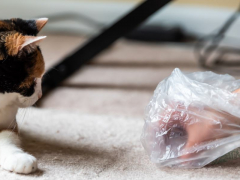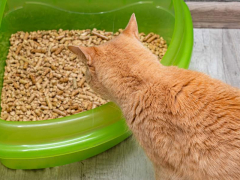You just got a new baby kitten, and it’s so cute and playful, but for some reason, it keeps biting you. It does not want to stop and you don’t know what to do.
This is when you should ask yourself, why do kittens bite in the first place? There are a few reasons why your kitten attacks feet, hands, and other body parts.
Kittens at a young age need to use their mouths to explore their surroundings.
They are generally not biting out of aggression, but it’s more about them wanting to learn tastes and textures. They are being inquisitive. You will see them biting everything, not only you.
They are supposed to learn to control this behavior from their mothers, brothers, and sisters at an early stage, but sometimes don’t learn that this is not acceptable.
People can often mistake aggression and rough playing. Aggression usually occurs when they are frightened, or smell or see another cat that they may not be familiar with.
When kittens play its usually silent, whereas aggression usually comes with hissing, growling or spitting. If a cat holds his mouth half open or does a sideways hop with his back arched up, this generally means he is in a playful mood and is being silly.
How To Stop Your Kitten From Biting?
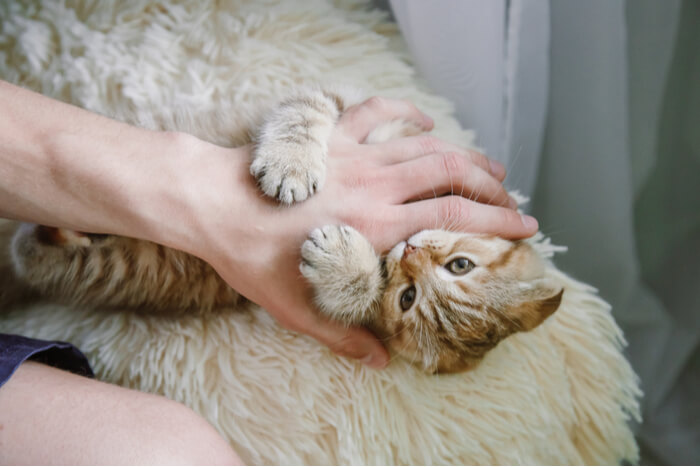
Cats will occasionally bite when they’re pet in a way that is overstimulating.
- Just say “Ow!”– When your kitten bites you, just walk away and do not give him any attention. Your kitten will learn that biting leads to loss of attention.
- Treats– Praise them and give them a treat When they play nice and don’t bite you. This will allow them to learn about good behavior.
- Your hands or feet are off limits– During play time, this sends the wrong signals. Rather play with a toy or a teddy bear when they want to play rough. This teaches them it’s ok to play rough, just not with you. You can encourage this by rubbing the teddy against his belly and then taking your hand away as soon as they start playing with the toy.
- Redirecting rough play– If your kitty is known to attack you from behind corners or doors, carry around some rolled up paper in your pockets. As you come round the corner or door, through a paper ball towards the area, redirecting your kitty to play with that instead.
- Use toys– Use a toy that has some distance from you, such as a pole with a string and ball attached. That redirects your kitten to play rough with something else and at a controlled distance from you.
- Spray bottle with water– An extreme measure if all else fails. If your kitty is about to attack you, you give a short burst of water in his direction and he will stop what he is doing immediately. This is not the nicest thing to do, so please use this under extreme circumstances only.
- If all else fails, consult an animal behaviorist
How to teach kitten not to bite? Well, teaching them from a young age is better than at an older age as it won’t be so easy to learn off the bad habits.
Never hit or yell at your kitten as this may lead to them fearing you and they may start avoiding you. We want to train them and not punish them. For more info you can check out this article from our friends at the Pawsome Kitty.
Kitten Bite Treatment 101
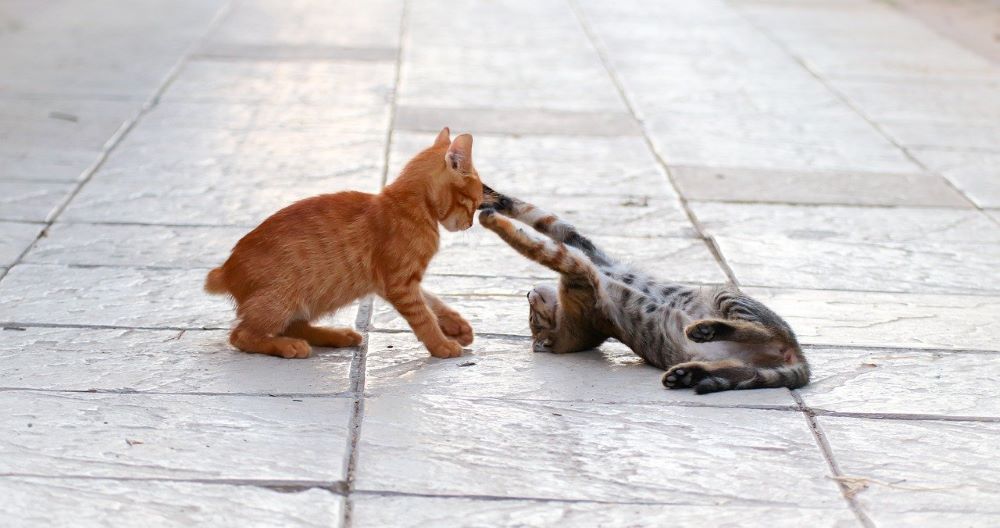
-
- Bites and scratched from your kitten, even minor can lead to something worse if not treated accordingly.
- Cats have many kinds of bacteria in its mouth that can pass on to you. Also please make sure your tetanus shot is up to date if bitten by a kitten. Here is what you should do if bitten or scratched:
- If the wound is bleeding, apply pressure to the area with a clean towel or bandage until the bleeding stops.
- If the wound is not bleeding heavily, you can clean your wound with soap and water, or disinfectant preferably and leave the wound under running water for a few minutes.
- Once the wound is cleaned, dry it completely. Then cover it with a sterile bandage or cloth.
- If the scratch or bite deeply punctured the skin, please contact your doctor. This can easily become infected if not treated.
- If a child has been bitten or scratched, please contact your doctor immediately as children are more prone to infections, especially if scratched on the face, hands or feet.
Please See A Doctor Immediately If:
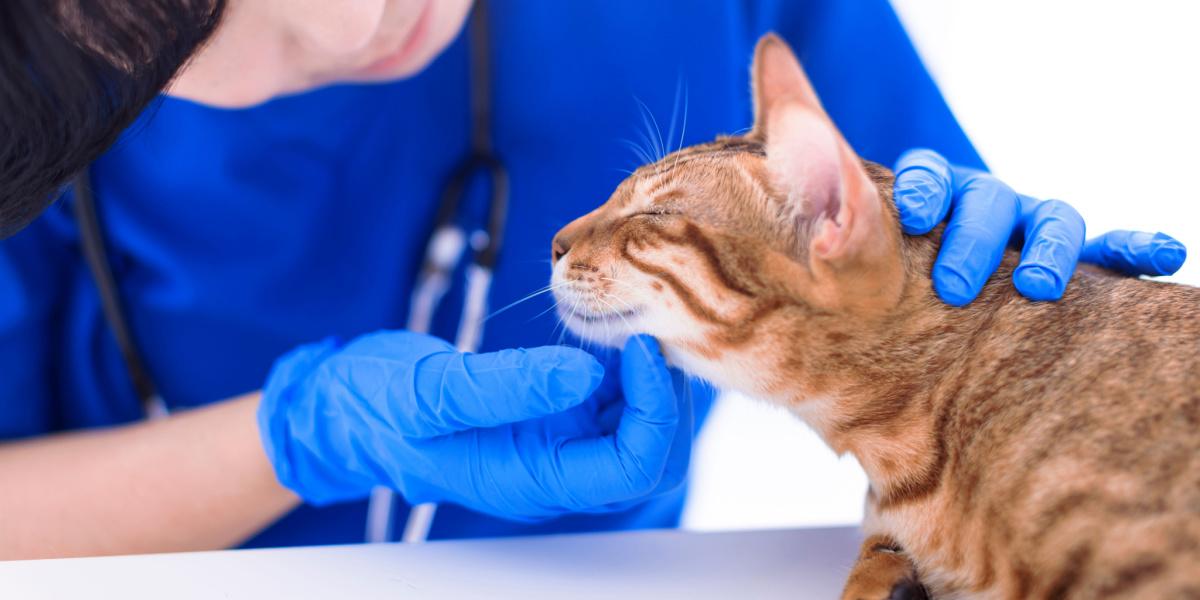
- The wound is on your face, neck, feet, or near a joint.
- If the wound becomes red, swollen, hot or increased in pain.
- If the attacking animal is a stray, or wild animal or if they were acting strangely when attacking.
- After direct pressure to the wound, it still bleeds after 10 minutes.
- If the wound is extremely deep and is associate with a severe injury.
- If you or your child has a weakened immune system due to other illness that could increase risk of infection.
Hopefully, you can now have a great time playing with your new kitten. You have now learnt the differences between aggression and rough play, and what to do if you have been bitten or scratched. You have also learnt a little bit on why do kittens bite and I don’t mean on their kitten food LOL.
So now it’s time to have fun and enjoy every moment you spend with your new little family member.
About the author:
Ryan Heinrich is the creator and owner of kittydesires.com a blog about everything kitty related. Ryan is from South Africa and has always loved cats. His own little one is 11 years of age and is named Spike and is a little terror. Head on over if you would like to read up about cats or just browse some cute articles.
